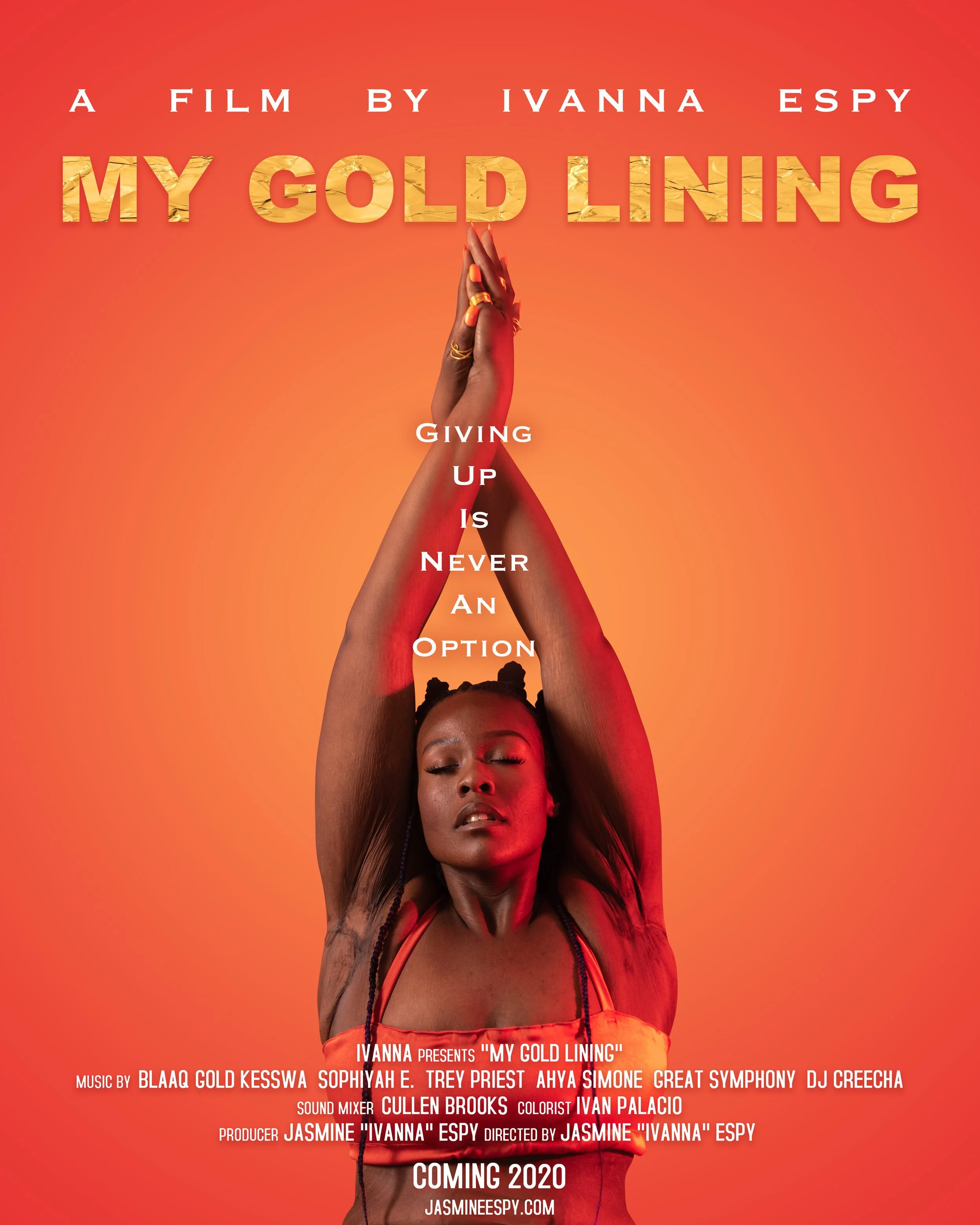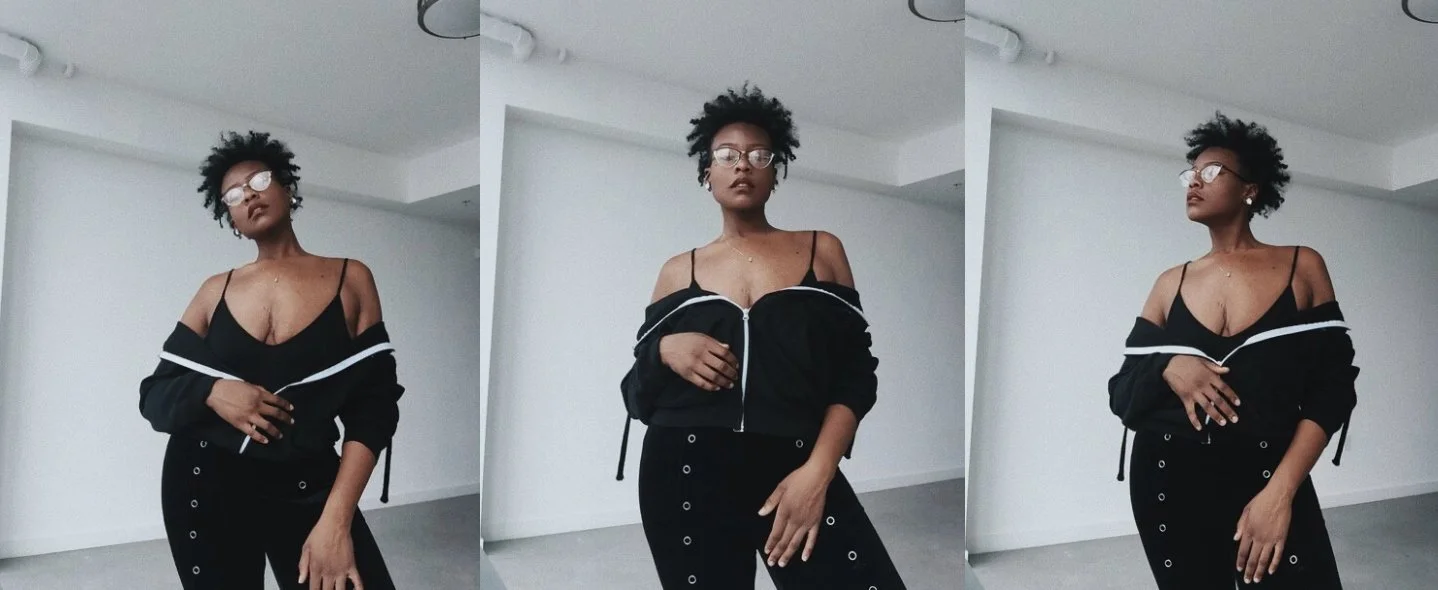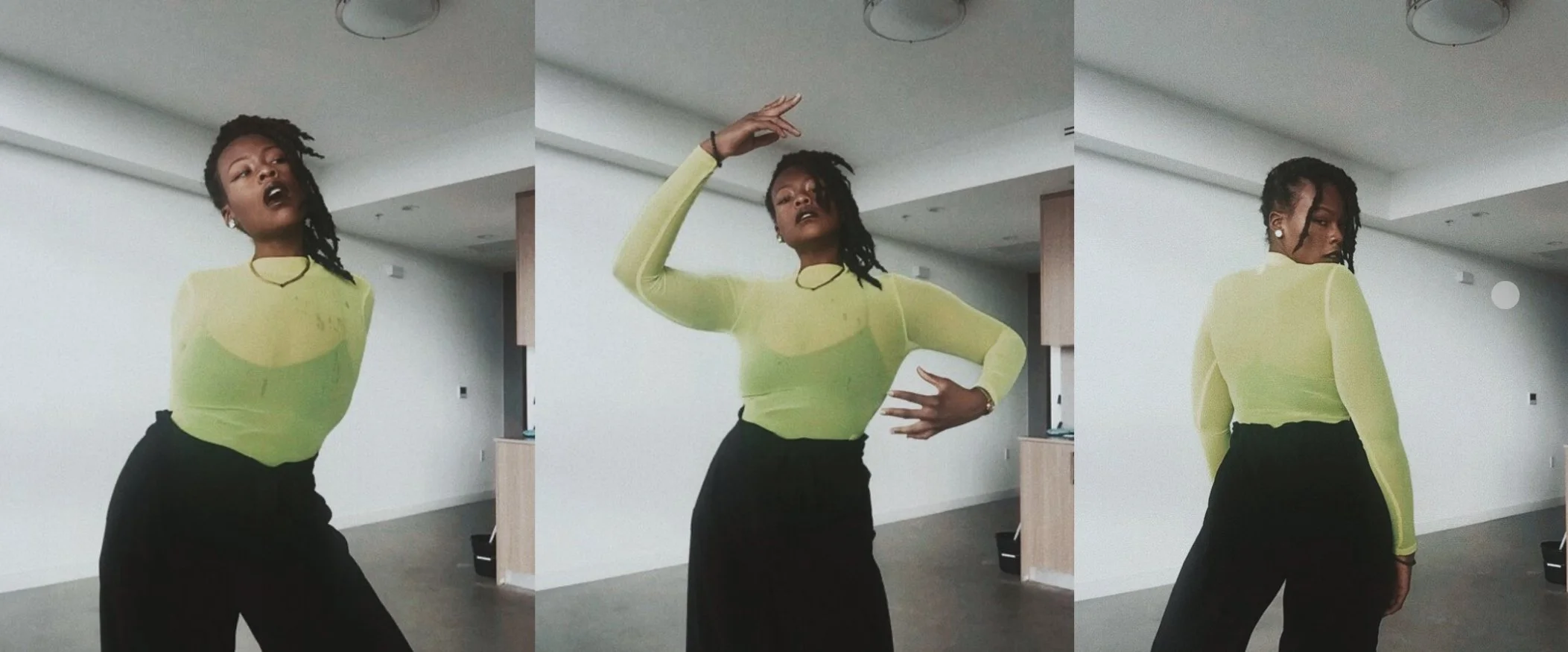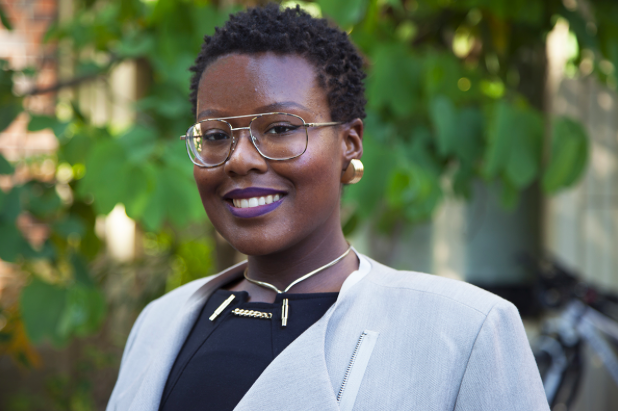Self-Acceptance Comes In Waves, And That's Okay Too
A VULNERABLE CONVERSATION WITH JASMINE ESPY
Led by Jadel Davis
Jasmine Espy, a filmmaker and freelance writer with published works in MetroTimes, BLAC Detroit, and HOUR magazine, recently released her first feature-length documentary featuring her battle with a rare chronic skin condition called Hidradenitis Suppurativa (HS). At her recent film screening, viewers learned HS is a condition that causes small to large painful boils and cysts to form under the skin, mostly affecting areas where the skin rubs together, such as the armpits, groin, buttocks, and breasts.
As the documentary takes viewers on an emotional journey through the lives of these patients, I came to realize that while the condition affects more intimate areas, unlike acne or rosacea, the road to accepting the skin you’re in isn’t any easier. However, in line with Jasmine’s cool-girl persona, the documentary made me and many other viewers remember that a bumpy road to self-acceptance is okay.
Knowing Jasmine personally though, you’d never suspect she’s struggled with self-acceptance -- her aura exudes confidence. So I sat with Jasmine to learn how she handles the mental highs and lows that come with almost any skin condition.
Q
HOW HAS YOUR SKIN CONDITION BECOME A MENTAL BARRIER FOR YOU?
A
The nature of the condition is random. You don't know when [an outbreak] is going to come; the mental part is always being on edge. You have anxiety, and you have depression that is fleeting but feels heavy when it's there. I would say, in my perspective, you see yourself mentally as this individual that can't possibly be loved because you have something that is largely affecting your skin.
Fear is such a negative thing, especially around conditions that you can't control or that just happened to you. I think the mental barriers go more in-depth than I've even explored myself. I believe there are things within the energy of just having a chronic illness that is indescribable. You know, I feel like, no matter how much I try to be happy, there's always this undertone feeling like, oh, you'll never have the life that you want because you're battling this skin condition.
But, I feel like it has helped me to have empathy for other individuals and learn how to take it slow with myself and what I need to heal myself. It's hit or miss sometimes and I'm not perfect at it, because I'm dealing with stuff now where I'm still trying to figure out how to balance my health along with all the other responsibilities I have in my life. So it's not always negative, but it's not always good either.
Q
I KNOW THIS SOUNDS SICK, BUT I'M HAPPY TO HEAR THAT BECAUSE YOUR STORY TEMPERS THE MESSAGE OF SELF-LOVE. I THINK WE TALK A LOT ABOUT THE DREAM OF LOVING EVERYTHING ABOUT OURSELVES BUT WE DON’T TEMPER THE MESSAGE BY SAYING IT WON’T BE ALL SUNSHINE AND BUTTERFLIES. IT’LL TAKE TIME TO HEAL. HOWEVER, JASMINE, I’M CURIOUS. SINCE HS IS A MORE INTIMATE SKIN CONDITION THAT THE PUBLIC WON’T NECESSARILY SEE, DOES IT STILL AFFECT HOW YOU MOVE AND INTERACT WITH OTHERS IN YOUR DAILY LIFE?
A
I think I've grown up in the entertainment industry in the sense that I consume TV, music, and art, and so in these realms, there's a particular body and skin type praised. Although there is diversification, there isn't enough representation across the spectrum.
So, you think those beauty standards are supposed to be your own, that you're supposed to adopt those. So, with having a skin condition, I'm like, well, my skin's not perfect, so therefore I'm not perfect, you know, and I need to do something to make myself look perfect. Let me cover up the scars and let me not enter into any intimate relationships because I don't want to have to explain myself or what I'm going through.
Q
IF I GOT IT CORRECTLY, FOR YOU WITH HS, THE FEELING STEMS MORE FROM THE POTENTIAL OF PEOPLE KNOWING, LIKE, WHAT WILL SOMEONE THINK OF ME IF THEY KNOW?
A
Yes, and that's the biggest thing that I dealt with when I was doing this documentary. It was at the forefront of my mind, 'what are people gonna think about me now?' People already think I'm quiet. Some people think I'm weird whatever, and I'm like, well, I don't want to expose this part to give people more ammunition to think whatever about me.
Sometimes I want to end up existing in the background. And it's funny because my mom points out that I like to do stuff that puts me in the foreground, like acting.
If I didn't feel so strongly about it, I don't think I would have done a documentary on HS because I want to keep it a secret. But it's like, why be ashamed of what you're going through and what you're experiencing. It's also that barrier of getting to the point where you can speak into the world so that you can tell people. So my way of telling people is through artistic expression because I feel like it softens the blow and makes people want to ask questions.
Q
IT SEEMS LIKE A KIND OF A WAR INSIDE OF YOURSELF. I FEEL LIKE YOU HAVE A NATURAL TEMPERAMENT TO WANT TO SPEAK AND WANT TO LEAD BUT THIS CONDITION HAS ALSO AMPLIFIED THE QUESTION THAT MANY OF US ASK, ‘WHY SHOULD YOU BE IN THE FRONT, AND WHAT WILL THEY THINK WHEN YOU ARE?’
HAS STEPPING INTO YOUR NATURAL INCLINATION TO LEAD COME WITH SELF-ACCEPTANCE?
A
I would say it has to come with self-acceptance, well not has to, you don't have to do anything right now. However, I think it makes it more difficult for your existence to accept the fact that you have it. And you have to take the time to get through that. It's not easy at all. I'm still having issues accepting the fact that I have to wake up and deal with this every single day. It makes me upset, but it's my reality. And so, in that reality, I have to say to myself, okay, well, what can I do to make myself more comfortable with what I'm experiencing and know that it won't last forever.
Q
I THINK SOMETHING IS UNIQUE IN THAT JOURNEY AND NOT TO MINIMIZE ANY OF THE PARTS THAT ARE VERY DISCOMFORTING AND HARD, BUT WHEN YOU SAID IN A RECENT INTERVIEW THAT HS HAS BECOME A BIT OF YOUR SUPERPOWER, WHAT DID YOU MEAN?
A
I think it made me realize it was one of those steps where it was like you can do anything. My dad can be a very logical individual, very stern. So I appreciate him for it because I'm both a logical and emotional person. So, when my emotions get too much, I need somebody to speak to my logic because that is what I need, I need some practical steps. And so my dad gave me some concrete steps, and they came harsh, but he told me if you want to change something in your life, then change it. Don't sit up here, acting like a victim about something. He said, do what you can, and take a step, every single day, and I'm softening it, haha.
It penetrated my soul, and I was like, all right, well, what can I do. And so, it's just putting two and two together. It's like a science experiment. I was an experiment for a while with myself. I was like, Okay, what is going to help to control this condition and so diet and exercise turned out to be it for me, that's not it for everybody.
I feel like I've utilized something that I thought was going to destroy me and made it into something that's going to help not only me but other people, so it goes beyond me and what I need. I think that's the most beautiful thing because I can strip my ego from it. I'm divorced from any specific outcome. So it's like if I help one person, that's great. If I help a million people, wow, like, cool, that's a goal too. My superpower is to exist and be able to tell people without stifling myself or who I am.




